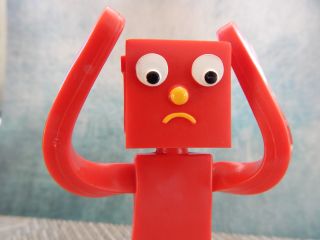Resilience
Let Your Children Be Frustrated; They'll Thank You For It Later
Allowing children to resolve their own challenges builds confidence and agency.
Posted August 21, 2023 Reviewed by Devon Frye
Key points
- Optimal frustration threads the needle between too little and too much parent support.
- If we solve our children's challenges for them, they do not learn to navigate a difficult world.
- Well-meaning parents clear obstacles, which can backfire for children later on.
- Love and support, rather than simply solving the issue ourselves, can encourage children to face challenges.

My recent posts have been exploring the broad topic of resilience. Relatedly, this post looks at the benefits of allowing life to be appropriately challenging for our children.
This process is known in the field of psychology as optimal frustration, which was coined back in 1971 by Heinz Kohut the Austrian-born American psychoanalyst. The idea is relatively simple, although the practice is much more nuanced.
As our children grow, we will be tempted to make life as easy as possible for them. Generally, this is out of love for them, but a parent’s own sense of competition or unresolved childhood conflicts may also play a role. Whatever the reason, these strategies tend to backfire, and ultimately leave our children unequipped to handle the inevitable adversity in the world.
On one side of the continuum, there is neglect where children are not given the enrichment, love, and support they require to develop to the best of their innate abilities. To these children, life is one frustration after the next, and it is tragically far from optimal.
The other side of the parenting range can also be insidious for a child’s development, although it goes largely unnoticed—unless there is something that brings it to light, such as the recent college admissions scandal. This form of parenting, colloquially labeled snowplow parenting, is when parents remove all obstacles in a child’s path to keep it smooth and clear.
Of course, we all know that a road never stays clear for long. Obstacles will arise, and we have to consider whether our children will be able to overcome them when we are not there to remove them.
Optimal frustration allows children to figure it out “on their own,” with parents stepping in only when a task or situation becomes emotionally or cognitively overwhelming. Even then, the parent provides just enough support so that the child experiences a sense of accomplishment for having completed the task. This is akin to Lev Vygotsky’s concept of using scaffolding within a child’s zone of proximal development to help advance learning.
There are relatively simple ways to promote optimal frustration. For younger children, giving them an age-appropriate toy and letting them figure it out on their own is one concrete example. Giving older children reasonable chores that gradually increase in complexity (without bailing them out) could help them grow in responsibility.
For teens, having them address academic concerns themselves will empower them, as opposed to mom and dad tackling those problems for them. I have seen some teens navigate their own therapy appointments. Others rely on their parents well into (and in some cases after) college to schedule and cancel appointments. Generally, the former group is more equipped to deal with the adult world, although individual differences in young adults must be considered.
Needless to say, doing assignments for a child of any age is generally counterproductive for growth. If a task or developmental milestone seems overwhelming to them, there is plenty of emotional support a parent can provide without solving the problem for them.
I will end with a quote attributed to Jean Piaget, the renowned child psychologist, who nicely sums up the problem with well-meaning adult involvement in a child’s life: “Every time we teach a child something, we keep him from inventing it himself.”


